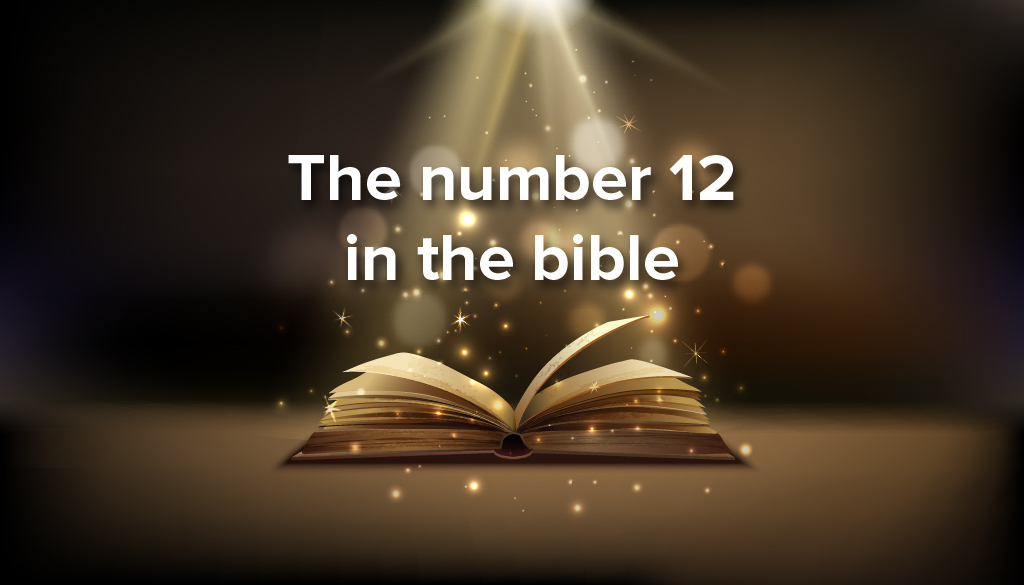- Key Takeaways
- The Symbolism of the Number 12 in the Bible
- Prominent Appearances of 12 in Scripture
- The Role of the Number 12 in Religious Practices
- Mathematics and the Number 12
- Cultural and Historical Significance of 12
- Interesting Facts about the Number 12
- Activities Involving the Number 12
- Summary
- Frequently Asked Questions
The number 12 holds special significance in the Bible, mathematics, and culture. This article explores the symbolism of completeness in the Bible, its unique mathematical properties, and its role in everyday life. While the number 12 is significant, other numbers in the Bible also hold symbolic meanings and contribute to a deeper understanding of biblical texts.
Key Takeaways
The number twelve symbolizes completeness, perfection, and divine authority throughout the Bible, appearing prominently in both the Old and New Testaments.
Biblical references to the number twelve include the twelve tribes of Israel, the twelve apostles chosen by Jesus, and the twelve gates of the New Jerusalem, highlighting its significance in worship and religious contexts. During their journey, the Israelites wandered in the desert and sent 12 spies to scout the Promised Land, highlighting the number’s historical significance.
Beyond religious significance, the number twelve plays a crucial role in mathematics and cultural practices, such as timekeeping with twelve months and hours, as well as its presence in mythology.
The Symbolism of the Number 12 in the Bible
The number twelve symbolizes perfection and authority in biblical contexts, a theme that emerges repeatedly throughout the scriptures. Numbers mentioned in the Bible, including the number 12, are intentional and not merely to reach a word count, encouraging readers to consider their deeper meanings. It is often associated with governance and divine order. Jesus chose twelve disciples to symbolize completeness among His followers, reflecting a foundational aspect of Christian belief.
The Old Testament mentions twelve cakes placed in the Tabernacle, underscoring the significance of the number in worship. The Book of Revelation also prominently features the number twelve, with references to the twelve gates of the New Jerusalem named after the twelve tribes of Israel.
This apocalyptic numerology signifies the totality of God’s people, illustrated by the symbolism of 144,000—12,000 from each of the twelve tribes. Overall, the number twelve conveys completeness and divine order in biblical narratives, frequently appearing in both the Old and New Testaments as a symbol of perfection and authority in the Bible, reflecting the concept of number symbolism.
Prominent Appearances of 12 in Scripture

The number twelve appears prominently in both the Old and New Testaments, symbolizing divine order, authority, and governance. From the twelve tribes of Israel to the twelve apostles, its significance is deeply ingrained in the biblical narrative.
Old Testament References
The Old Testament mentions the number twelve 187 times, emphasizing its importance. Jacob’s twelve sons form the foundation of the tribes of Israel, which played crucial roles, such as participating in the battle against the Midianites. During their time in the desert, the Israelites wandered and sent 12 spies to scout the Promised Land, highlighting the significance of this period in their history.
Beyond the tribes of Israel, the number twelve appears in other contexts. Ishmael, Abraham’s son, had twelve princes, highlighting its broader significance in the biblical narrative. These references underscore the number twelve as a symbol of divine authority and governance.
New Testament References
In the New Testament, Jesus chose twelve disciples, also known as the twelve apostles in Christian tradition. This choice symbolized the establishment and completeness of the church. After Judas Iscariot’s disgrace, Saint Matthias was added to restore the number of apostles to twelve.
The Book of Revelation describes the New Jerusalem as having twelve gates and twelve foundations, each named after the twelve tribes and apostles. This use of the number twelve in eschatological visions further emphasizes its symbolic role in conveying completeness and divine authority.
Throughout the New Testament, the number twelve symbolizes completeness and divine authority, especially in the context of the apostles and the vision of the New Jerusalem.
The Role of the Number 12 in Religious Practices
The number twelve appears 187 times in the Bible, making it significant in religious practices. During their time in the desert, the Israelites wandered and sent twelve spies to explore the Promised Land, highlighting the number’s importance in religious contexts. Jacob’s twelve sons formed the foundation for the twelve tribes of Israel, a central element in Jewish tradition. Moses sent twelve spies to explore the Promised Land, highlighting the number’s importance in religious contexts.
In Christian practices, the number twelve also holds significant importance. Here are some examples:
Elijah constructed an altar using twelve stones.
The Twelve Minor Prophets are recognized in the Old Testament.
Jesus feeding 5,000 people with twelve baskets of leftovers is another example of the number’s symbolic presence. The number twelve carries religious significance in this context.
At the age of twelve, Jesus was found in the temple discussing with teachers, marking a pivotal moment in His early life.
The New Jerusalem described as having twelve gates and twelve foundations, is yet another testament to the number twelve’s enduring significance in religious practices. The number twelve represents divine order and serves as a cornerstone in the rituals and stories of the world’s major religions.
Mathematics and the Number 12
The number twelve is not only religiously significant; it also holds a prominent place in mathematics. Classified as a composite, even, natural number, and whole number, twelve is the number that showcases its versatility and importance in various mathematical contexts.
Examining its properties and use in numeral systems reveals a significant number of its significance.
Properties of the Number 12
Twelve, a composite number, can be divided into smaller integers. It has six divisors: 1, 2, 3, 4, 6, and 12. This characteristic makes twelve the smallest number with exactly six divisors, highlighting its importance in various mathematical calculations.
Additionally, twelve is the smallest number to contain four non-trivial factors and is classified as the third superior highly composite number, indicating its comparatively large number of divisors. These properties underscore twelve’s unique and significant role in mathematics.
Numeral Systems Using 12
The duodecimal system, or base-twelve numeral system, uses twelve as its base. In this system, the numeral ‘10’ represents the value of twelve, showcasing its unique structure. Historically, various cultures have found this system significant due to its efficient representation of fractions.
The duodecimal system is sometimes considered superior to the decimal system due to its ease in representing fractions like 1/3 and 1/4. This historical and practical significance highlights the versatility and utility of the number twelve in numeral systems.
Cultural and Historical Significance of 12
The number twelve holds a crucial place in various cultural contexts, representing completeness and cosmic order. Its significance extends beyond religious traditions to influence timekeeping, mythology, and folklore. While the number 12 is significant, other numbers in the Bible also hold symbolic meanings and contribute to a deeper understanding of biblical texts.
Timekeeping and Calendars
The number twelve plays an essential role in timekeeping. Many calendar systems, whether solar or lunar, traditionally include twelve months, reflecting the year’s natural cycles. This division helps organize time in a manageable and consistent manner that is central to daily life.
Additionally, twelve hours on both the analog clock’s AM and PM cycles further emphasize the number’s role in structuring our perception of time. These timekeeping systems, including the twelve-hour clock, are integral to how we organize our days and lives.
Mythology and Folklore
In Greek mythology, the twelve principal deities known as the Olympians represent various aspects of life and nature. This grouping underscores the number twelve’s association with completeness and authority. Similarly, the story of King Arthur includes twelve knights around the Round Table, symbolizing unity and strength.
The number twelve appears in various mythologies and folklore, showcasing its cultural importance and universal resonance. These examples illustrate how the number twelve often symbolizes cosmic order and divine authority in twelve carries religious myth.
Interesting Facts about the Number 12
The human body has twelve cranial nerves, which are crucial for sensory and motor functions. A dozen equals twelve, and there are twelve face cards in a standard deck of cards. In astrology, twelve zodiac signs represent different personality traits.
Interestingly, in many languages, the word for twelve is often a compound of ‘two’ and ‘ten’. The number twelve is the last single-syllable number in English, adding to its uniqueness. In Indian schooling, classes typically end at the 12th standard, marking an important educational milestone.
Additionally, there are twelve months in a solar year, twelve stars on the flag of Europe, and a regular dodecahedron in a three-dimensional shape with twelve pentagonal faces. These interesting facts highlight the diverse and widespread importance of the number twelve. While the number 12 is significant, other numbers in the Bible also hold symbolic meanings and contribute to a deeper understanding of biblical texts.
Activities Involving the Number 12
Using counting flashcards that feature the number twelve can help children recognize numbers and reinforce their counting skills with visual aids. Counting activities foster children’s development and understanding of numbers, making the process of learning about twelve both fun and educational.
Including the number twelve in these activities encourages engagement and strengthens numeracy skills. These activities enhance math skills by providing an interactive way to learn about numbers, including twelve.
Summary
The number twelve, with its deep roots in biblical symbolism, cultural significance, and mathematical properties, is a number that resonates across various contexts. From the twelve tribes of Israel to the twelve apostles, and from the twelve months in a year to twelve hours on a clock, its influence is ubiquitous.
In conclusion, twelve carries religious, mythological significance, and practical significance, making it a truly remarkable number. Understanding its multifaceted roles helps us appreciate the intricate ways numbers shape our world.
Frequently Asked Questions
Why is the number twelve significant in the Bible?
The number twelve is significant in the Bible as it represents divine authority, perfection, and completeness, exemplified by the twelve tribes of Israel and the twelve apostles. This dual representation underscores its importance in biblical teachings.
How is the number twelve used in mathematics?
The number twelve is significant in mathematics as a composite number with six divisors and as a base for numeral systems such as the duodecimal system. Its properties contribute to various mathematical concepts and calculations.
What are some cultural significances of the number twelve?
The number twelve is culturally significant as it features prominently in timekeeping with twelve months in a year and twelve hours on a clock, as well as in mythology, notably with the twelve Olympian gods. Thus, its importance resonates across various societal structures.
What are some interesting facts about the number twelve?
The number twelve holds significant meaning, as it represents twelve cranial nerves in the human body, twelve zodiac signs in astrology, and twelve stars on the European flag. Its ubiquitous presence across various fields makes it a fascinating numeral.
How can children learn about the number twelve?
Children can learn about the number twelve effectively through counting flashcards and engaging in activities that promote recognition and numeracy skills. This hands-on approach facilitates a better understanding of the number.


